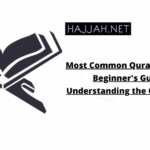Empowering Women in Islam – Empowerment is a concept that transcends cultural and religious boundaries. In the context of Islam, empowering women holds significant importance. This article delves into the ways in which Islam empowers women, promoting their rights, education, participation in the workforce, leadership roles, and community engagement.
Introduction
Islam is often misunderstood when it comes to women’s rights and empowerment. However, a closer examination of Islamic teachings and history reveals a religion that places immense value on the well-being and empowerment of women. From the Quran to the examples set by influential Muslim women throughout history, Islam offers a framework for empowering women in various spheres of life.
Understanding the Role of Women in Islam
Women in the Quran
The Quran, the holy book of Islam, emphasizes the equality and respect of men and women as believers. It recognizes the inherent worth of women and their significance in society. Quranic teachings promote justice and fairness for women, advocating for their rights and empowerment.
Also Read
Women in Islamic History
Islamic history is replete with examples of influential women who played pivotal roles in the development of societies. From Khadijah, the first wife of the Prophet Muhammad, to scholars and leaders like Aisha, Fatimah, and Rabi’a al-Adawiyya, women have made lasting contributions to the Islamic world.
Women’s Rights in Islam
Contrary to popular misconceptions, Islam upholds women’s rights. Women in Islam have the right to education, property ownership, inheritance, and freedom of expression. Islam provides a balanced framework that ensures the protection and empowerment of women while considering the dynamics of society.
Education and Empowerment
Importance of Education for Women
Education is a fundamental tool for empowerment. Islam emphasizes the acquisition of knowledge for both men and women. Educating women equips them with the skills, knowledge, and confidence necessary to participate actively in society and make informed decisions.
Promoting Education for Women in Islamic Societies
Various initiatives within Muslim communities strive to promote education for women. Muslim-majority countries have made significant progress in narrowing the gender gap in education. Scholarships, schools, and programs specifically designed for women’s education contribute to their empowerment and societal development.
Women in the Workplace
Breaking Stereotypes
Islam challenges stereotypes that limit women’s roles in the workplace. It encourages women to pursue careers, contribute to the economy, and utilize their skills and talents. By breaking traditional gender roles, Muslim women are reshaping the narrative around women in the workforce and proving that they can excel in various professional fields.
Career Opportunities for Women in Islam
Islam encourages women to seek employment and pursue careers that align with their skills and interests. Muslim women have excelled in diverse fields such as medicine, law, education, entrepreneurship, and technology. The recognition of women’s abilities and the support provided within Islamic principles have opened doors for career advancement and financial independence.
Balancing Work and Family Life
Islam recognizes the importance of maintaining a balance between work and family life. Muslim women are encouraged to prioritize their roles as mothers and wives while pursuing their careers. The flexibility and understanding within Islamic teachings allow women to navigate their professional responsibilities alongside their familial duties, ensuring a harmonious and fulfilling life.
Political Participation and Leadership
Women in Politics
Contrary to misconceptions, Islam does not prohibit women from engaging in political activities. Muslim women have been actively involved in politics, both as voters and leaders. They have held positions of authority and have been elected as heads of state, ministers, and parliamentarians in various countries, demonstrating their capability to contribute to political decision-making processes.
Leadership Roles for Women in Islam
Islam acknowledges the leadership potential of women. It provides opportunities for women to assume leadership roles within their families, communities, and professional spheres. Women in Islam are encouraged to lead by example, contribute to the welfare of society, and make a positive impact through their actions and initiatives.
Social and Community Engagement
Women’s Contributions to Society
Muslim women have been instrumental in contributing to society through charitable acts, philanthropy, and community engagement. They actively participate in initiatives aimed at alleviating poverty, providing healthcare, education, and promoting social welfare. Their compassion and dedication exemplify the spirit of Islam and empower them to make meaningful contributions to the betterment of society.
Charity and Volunteering
Islam places great emphasis on acts of charity and volunteering. Muslim women actively engage in charitable endeavors, donating their time, skills, and resources to uplift the less fortunate. Through charitable organizations and community-driven projects, women in Islam play a crucial role in addressing societal challenges and fostering a sense of unity and compassion.
Empowering Women through Community Initiatives
Muslim communities around the world have implemented various initiatives to empower women. These initiatives include mentoring programs, skill development workshops, networking platforms, and financial support for entrepreneurial ventures. By providing a supportive environment and resources, these initiatives foster self-confidence and enable women to thrive in their personal and professional lives.
Challenges and Progress
Addressing Misconceptions
Misconceptions and stereotypes surrounding women in Islam pose significant challenges to their empowerment. Islamophobes often present a distorted image of Islam, neglecting the inherent empowerment and rights it grants to women. Overcoming these misconceptions requires education, dialogue, and promoting accurate information about Islam’s stance on women’s rights.
Overcoming Barriers
While Islam promotes women’s empowerment, cultural practices and societal norms sometimes pose barriers to women’s progress. These barriers can include limited access to education, discriminatory laws, and societal expectations. Efforts are being made within Muslim societies to address these challenges, promoting gender equality, and ensuring that women have equal opportunities to thrive.
Examples of Empowered Muslim Women
Numerous Muslim women have achieved remarkable feats, breaking barriers and defying societal expectations. From Nobel laureates to influential activists, Muslim women have proven their strength, resilience, and ability to drive change. Their achievements serve as inspiring examples of empowered women within the Islamic world.
Conclusion
Islam provides a comprehensive framework for empowering women, emphasizing their rights, education, participation in the workforce, leadership roles, and community engagement. It rejects gender-based discrimination and promotes equality, recognizing the inherent worth and capabilities of women.
perceptions, Muslim women are actively shaping their lives and societies, contributing to various fields and making a positive impact. Through education, career opportunities, political participation, community engagement, and initiatives that promote women’s empowerment, Islam empowers women to fulfill their potential and thrive in all aspects of life.
As we continue to progress, it is important to address misconceptions and barriers that hinder women’s empowerment. By promoting accurate information about Islam’s stance on women’s rights and challenging discriminatory practices, we can create a more inclusive and supportive environment for women. It is crucial to recognize and celebrate the achievements of empowered Muslim women who serve as role models and inspire future generations.
In conclusion, empowering women in Islam is a multifaceted endeavor that encompasses various aspects of life. From education to career opportunities, political participation to community engagement, Islam provides a framework that values and uplifts women. By embracing the principles of equality, justice, and respect, we can continue to empower women within the Islamic world and create a more inclusive and equitable society for all.




